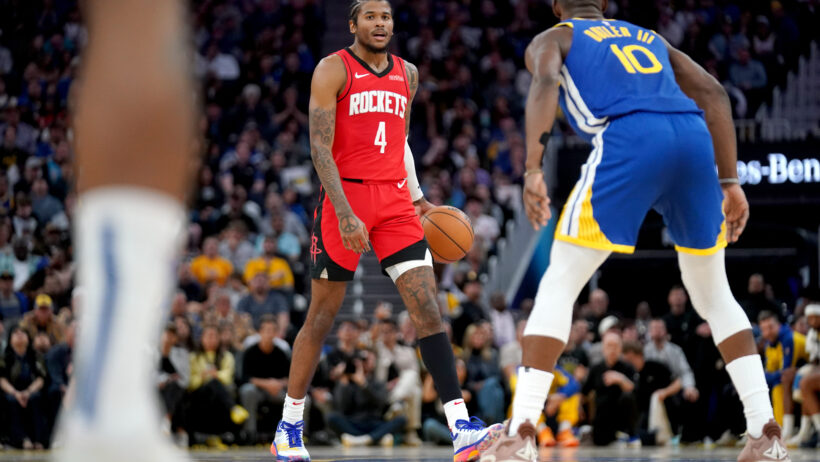How Golf Rankings Are Calculated: A Comprehensive Guide

Understanding how golf rankings work is key when you’re setting out to make smart golf bets. However, golf doesn’t have a universal system for ranking players.
Knowing how the various systems are calculated will increase their value for you when making your wagers at the best golf betting sites.
What the PGA Money List Means
Before I dive into the more analytical golf rankings, let’s start with the simplest one, the money list.
The money list ranks golfers based on the amount of official prize money they’ve earned throughout the year. The money list once determined who kept and lost their tour cards, and (partly) who was named PGA Player of the Year. Back in the day, the money list was king.
Players did everything they could to maximize the amount of money they won on the PGA Tour, and not simply to shore up their bank accounts. Of course, money has an intrinsic value that no point system ever can. But tracking prize winnings was actually a pretty solid way to track performance.
Unfortunately, it was also considered somewhat uncouth, and despite endless attempts to “grow the game” and appeal to a more diverse audience, golf retains a WASPy aversion to talking about money.
The money list today is simply another way to marvel at how much money Justin Thomas makes (and another opportunity to feel sorry for yourself).
How Golf Rankings Are Calculated
Golf rankings are primarily calculated using a points-based system, and there are a few key ranking systems used in professional golf. The two most prominent are the Official World Golf Ranking (OWGR) and the FedEx Cup points system (specific to the PGA Tour). Here’s an overview of how each works:
The FedEx Cup
The FedEx Cup is unique to the PGA Tour and is more focused on performance across a season (typically April to August). This system is used to determine the player of the year and playoff qualification.
How FedEx Cup points are allocated:
- Regular Season Points: Players accumulate points based on how they perform in PGA Tour events. Higher finishes in higher-profile events like major championships yield more points.
- Playoff Points: Players accumulate more points through the Playoffs and can earn additional points with each round they advance.
- FedEx Cup Champion: At the end of the season, the player with the most points is crowned the FedEx Cup Champion, winning a large cash prize.
Official World Golf Rankings
The OWGR ranks male professional golfers based on their performance in recognized tournaments over a two-year period. Here’s how it works:
OWGR points calculation:
- Tournament Performance: Players earn points based on their finishing positions in sanctioned tournaments. The number of points awarded depends on the prestige and difficulty of the tournament.
- Field Strength: A major tournament like the Masters or the U.S. Open offers more ranking points than smaller events because of the higher competition level.
- Points Decay: Points awarded for a tournament are not fixed indefinitely. They gradually decrease (decay) over a rolling 2-year period. For example, the points for a win in a tournament will be halved after one year and disappear after two years.
OWGR scoring system:
- Ranking Points Distribution: Each event is assigned a number of points based on its classification. A PGA Tour event might offer more points than a regular European Tour event.
- Average Calculation: The ranking is calculated based on the player’s average points over the 52-week period (for tournaments in the last two years). The formula averages their points, factoring in the tournament strength and their finish position.
Role of Major Tournaments and Event Fields
Major tournaments draw the most attention to golf each year, and for good reason. They have the most competitive fields, with all of the top golfers playing for the sport’s top prizes. That’s also why they carry more weight in determining golf rankings.
- Majors: Major tournaments such as The Masters, U.S. Open, British Open, and PGA Championship are given more weight in the ranking calculations. These tournaments offer more ranking points and are considered “bigger” events than regular tournaments.
- Strength of Field: If a tournament has a stronger field (more top-ranked players competing), it typically awards more ranking points. For instance, a smaller event with fewer top-ranked golfers will give out fewer points compared to one that attracts more of the top players.
Other Tours
Each tour around the world has its own system for ranking players. For example:
- European Tour and LPGA have their own rankings.
- Points on these tours are factored into the OWGR calculation, and their events are considered based on their field strength.
Summary of Golf Ranking Systems
- The OWGR is a rolling 2-year points system based on performance in sanctioned events, with points decreasing over time.
- The FedEx Cup system rewards performance during the PGA Tour season, with points based on finishes in specific tournaments and the playoffs.
- Major tournaments carry more weight, and rankings are influenced by the field strength and the player’s performance relative to that field.
- BETMGM SPORTSBOOK
USE CODE SBD1500 & GET $1,500 BACK IN BONUS BETS
- BET365 SPORTSBOOK
BET $5 & GET $150 IN BONUS BETS WITH CODE DIME365
- FANATICS SPORTSBOOK
BET & GET UP TO $1,000 IN BONUS BETS!
- DRAFTKINGS SPORTSBOOK
BET $5 & GET $200 IN BONUS BETS INSTANTLY!
- FANDUEL SPORTSBOOK
BET $5 & GET $250 IF YOUR BET WINS
- CAESARS SPORTSBOOK
USE CODE SBD2DYW & BET $1 TO DOUBLE THE WINNINGS ON YOUR FIRST 10 BETS!
Must be 21+. GAMBLING PROBLEM? Call 1-800-GAMBLER (CO, IL, KS, KY, MD, MI, NC, NJ, OH, PA, TN, VA, VT, WV, WY); (800) 327-5050 or gamblinghelplinema.org (MA); (877) 8-HOPENY (NY); 1-800-NEXT-STEP (AZ); (888) 789-7777 (CT); 1-800-BETS-OFF (IA); 1-800-9-WITH-IT (IN); mdgamblinghelp.org (MD); morethanagame.nc.gov (NC); 1800gambler.net (WV)
Golf Rankings Aren’t Perfect
Like all individual sports that rely primarily on tournament-style play, it can be challenging to directly compare the abilities of two golfers unless they happen to matched together.
The key is to understand exactly how golf ranking systems are calculated and the limitations of each approach. From there, you can evaluate the numbers with the proper context and use them to more effectively handicap your golf wagers.
If you’re looking to maximize your golf betting knowledge, check out our sport-specific betting advice for more helpful tips and tricks.

Evergreen Writer/Editor; Sportsbook Expert
With nearly two decades of experience in sports media, Paul Costanzo turned his professional attention to sports betting and online gambling in January of 2022. He's covered every angle of the industry since then, managing and creating content for PlayMichigan and The Sporting News, and now SBD.




